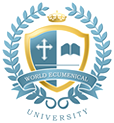Frequently Asked Questions
REVALIDATION / RECOGNITION OF FOREIGN DIPLOMA
BY CAROLINA BORI PORTAL
Now it’s so much easier to revalidate your undergraduate or postgraduate degree abroad. Through the Carolina Bori Portal initiative of the Ministry of Education. Have you finished your undergraduate or postgraduate studies abroad, are you back in the land of Palmeiras and are not sure how to revalidate or recognize your diploma? Calmly, we going to explain to you everything step by step.

Click on the questions below to see the answers!
Who was Carolina Bori?
A graduate scholar who joined Pedagogy and Psychology, studied racial and social prejudices, and discussed essential questions about the methodological procedures of science and Experimental Psychology. How important is having the name of a woman as the title of such an important project in the education of our country?
The reflection remains! We have just described a bit of the history of this fantastic woman, but if you are interested in the history of Carolina Bori and want to read more? Visit the website below.
Why Revalidation / Recognition? What is one and what is the other?
Revalidation is the term used for the undergraduate process, while recognition is used for stricto sensu (master’s and doctorate) postgraduate courses, both issued by foreign universities.
Data from Resolution No. 3 of June 22, 2016.
What is this platform?
Inaugurated on April 13, 2017, the platform is nothing more than a website where, through registration and access, you can facilitate the entire Ministry of Education system (and also facilitate your situation) for the revalidation / recognition of Titles and foreign diplomas in Brazil.
In addition, as it is a mainly digital process, it generates greater interactivity between interested parties (applicants and institutions). That means, there are only advantages to this new system! The guidelines for the processes of revalidation of foreign university degrees were established by the Ministry of Higher Education (SeSu – MEC).
at the same time, the master’s and doctoral degrees stricto sensu are the responsibility of the Coordination for the Improvement of Higher Education Personnel (CAPES). Access below the Normative Ordinance / MEC nº22 to know more about the subject.
What documents should I submit for review?
In case of a Stricto sensu Postgraduate Diploma (Master and Doctorate):
1- Record containing personal data and, where applicable, information on the institutional affiliation that it maintains in Brazil;
2- Copy of the diploma duly registered by the institution responsible for the diploma, in accordance with the legislation in force in the country of origin and;
3- Copy of the thesis or dissertation with record of approval of the examining board, with copy in digital file in compatible format, accompanied by the following documents:
a) Official record or document of the institution of origin, containing the date of the defense, if applicable, the title of the work, its approval and the concepts granted; and
b) names of the participants of the examining board, if applicable, and of the advisor, accompanied by their brief curriculum;
c) If the program of origin does not provide the public defense of the thesis, the student must attach a document issued and authenticated by the institution of origin, describing the thesis or dissertation quality assessment procedures adopted by the institution (including the blind evaluation issued by an external reviewer).
4- Copy of the transcript, which describes the topics or activities that you attended, with the respective periods and the total workload, indicating the frequency and the result of the evaluations in each subject.
5- Brief description of the research activities carried out, internships and printed or electronic copies of the scientific works resulting from the dissertation or thesis, published and / or presented in congresses or academic-scientific meetings, indicating the author (s) , the name of the journal and the date of publication and / or name and place of the scientific events where the works were presented
6- The results of the external evaluation of the institution’s postgraduate course or program, if applicable, and have been carried out by public or accredited institutions in the country of origin, and other existing information on the reputation of the program indicated in documents, reports or reports.
The documents treated in points II, III a, IV must be registered by a foreign institution responsible for the diploma, in accordance with the legislation in force in the country of origin, apostilled in the event that its origin is from a country signatory to the Agreement of The Hague (Resolution CNJ 228 of June 22, 2016) or certified by a competent consular authority in the case of non-signatory countries.
It is important to keep in mind that: ALL DOCUMENTS MUST BE RECOGNIZED BY THE INSTITUTION RESPONSIBLE FOR DIPLOMATION, ACCORDING TO LEGISLATION IN THE COUNTRY OF ORIGIN (IF THE COUNTRY IS A SIGNATOR OF THE HAIA CONVENTION. In cases where the country is not a signatory must be authenticated by the competent consular authority.
Important: The act of apostille is only performed in the country in which the diploma was issued.
To find out if the country, in which you completed undergraduate or graduate, is a signatory to the Hague Convention (HCCH), click below.


